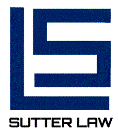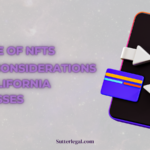Table of Contents
- Introduction:
- Understanding Section 1202 QSBS:
- Key Benefits Section 1202 QSBS for Startup Founders:
- Conclusion:
Introduction:
As the startup ecosystem continues to thrive, attracting both investors and entrepreneurs, it becomes crucial for startup funders to understand the various tax benefits and incentives available to them.
One such incentive that holds significant potential for startup funders during an M&A (Merger and Acquisition) deal is Section 1202 Qualified Small Business Stock (QSBS).
This blog post aims to shed light on the advantages of utilizing Section 1202 QSBS and how it can positively impact startup founders in M&A transactions.
Understanding Section 1202 QSBS:
Section 1202 of the Internal Revenue Code was established to encourage investments in certain small businesses.
Under this provision, investors and Startup Funders can benefit from significant tax advantages if they hold eligible stock in qualified small businesses for a specific period.
These advantages include the potential exclusion of a portion or all of the gain from the sale of QSBS during an M&A or on a secondary market.
Key Benefits Section 1202 QSBS for Startup Founders:
- Tax Exclusion: The primary advantage of Section 1202 QSBS for startup funders is the potential exclusion of capital gains realized upon the sale of qualified stock. Depending on the circumstances, eligible investors may exclude up to 100% of the gain from the sale of QSBS. This exclusion can lead to substantial tax savings, enabling startup funders to maximize their returns.
- Favorable Tax Rates: Even if the exclusion is not 100%, Section 1202 QSBS still offers favorable tax rates. The gain from the sale of qualified stock held for at least five years can be subject to a reduced tax rate of 0%, 15%, or 28%, depending on the investor’s tax bracket. Compared to ordinary capital gains rates, which can be as high as 37%, the potential tax savings are considerable.
- Encourages Long-Term Investments: Section 1202 QSBS is designed to encourage long-term investments in startups. To qualify for the tax benefits, the investor or startup funder must hold the stock for at least five years before selling. This requirement aligns the interests of the investor, the startup founders, and the startup by incentivizing patient capital, fostering stability, and promoting growth. Startup funders willing to commit to long-term partnerships can unlock significant tax advantages through Section 1202 QSBS.
- Enhances Investment Returns: By leveraging Section 1202 QSBS, startup funders can enhance their investment returns. The potential tax savings resulting from the exclusion or reduced tax rate can significantly boost the overall profitability of the investment. This, in turn, attracts more investors to the startup ecosystem, fueling innovation and economic growth.
Conclusion:
In the dynamic world of startup funding and M&A transactions, understanding the tax benefits available is crucial for investors. Section 1202 QSBS presents a unique opportunity for startup funders to leverage substantial tax advantages during an M&A deal.
From potential exclusions to favorable tax rates, Section 1202 QSBS encourages long-term investments and enhances investment returns.
As a startup founder, it is essential to consult with tax advisors and legal professionals to fully comprehend the eligibility requirements and ensure compliance with the regulations surrounding Section 1202 QSBS.
By doing so, startup funders can optimize their tax strategies, maximize returns, and contribute to the growth of the startup ecosystem. If you have questions about your qualifications under QSBS please contact an experienced M&A attorney at Sutter Law for a free consultation.






